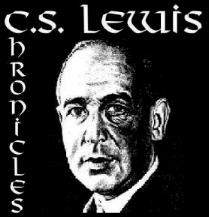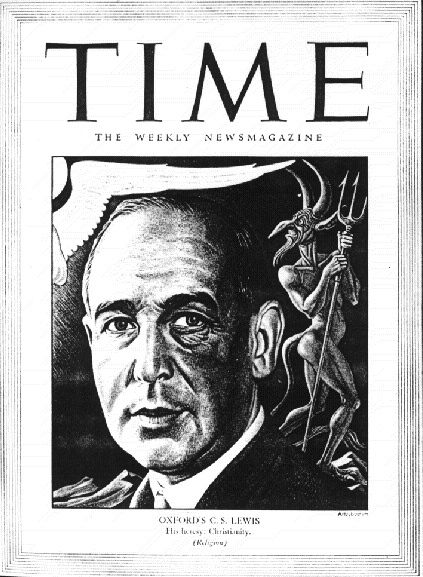
C.S. Lewis Chronicles
A Compendium of Information about this Great Writer
Although the world tragically lost a great man on November 22, 1963, he left us a rich legacy of literature which lives on. Not only was Clive Staples (Jack) Lewis prolific--the fact that he wrote in a wide variety of genres means he has produced something for everyone. Lewis' work ranges from poetry to science fiction, from academic treatises to defenses of the Christian faith, from anointed correspondence to sanctified fantasy. As we approach the millennium, his popularity continues to grow; everything Lewis wrote for publication remains in print.
Many read Lewis merely for pleasure, and he certainly offers that. Others search his books for answers to questions about eternity and humanity's place in the cosmos. The fact that Lewis, a professor at both Oxford and Cambridge, possessed a keen intellect strengthens his credibility in many circles. That this brilliant agnostic came to recognize the validity first of Theism, and then of Christianity, provides an amazing testimony. That he could also communicate the gospel so effectively to the "common person" is an additional evidence of his skill. Lewis, a faithful member of the Anglican communion, was no defender of denominational particulars. His calling was to promote a profound vision of "mere Christianity," which is nothing less than the heart of the faith. His theology was thoroughly incarnational--focusing always on Jesus Christ. It is no accident that his popular Chronicles of Narnia series revolves not around human protagonists, but around Aslan himself.
Brief biographies of Lewis abound on the internet, and it is not the purpose of this site to duplicate these. However, some major themes in his life are worthy of note here. The loss in his youth of his beloved mother left a deep impression on Lewis. Without her influence, and entrusted to the care of agnostic and atheistic educators, he gradually lost his faith. His love of literature was lifelong, he eventually received an education at Oxford, where he taught for the longest portion of his life. A confirmed bachelor, Lewis unexpectedly fell deeply in love with Joy Davidman in the later years of his life. The joys of their life together, and the grief of their parting upon her death are told touchingly in various volumes (most notably A Grief Observed) and the films entitled "Shadowlands." Lewis' stepson Doug Gresham also provides an intimate portrayal of the family in his superb Lenten Lands.
Beyond his academic orientation, it is worth noting that two international conflicts also profoundly marked his life. Lewis was a veteran of the First World War. Although not forced to serve, since he was actually a native of Northern Ireland, he volunteered to confront German imperialism. In the trenches of France, Lewis was seriously wounded. However, this physical wound left less a mark on his thinking than the horror of fascism which burned during the Second World War. Some of Lewis' most significant writings were developed during the war years. Mere Christianity itself was based on a series of inspiring radio broadcasts that he delivered over the BBC as the British wondered whether or not they would survive the night in their bomb shelters. The Screwtape Letters, his innovative and insightful portrayal of correspondence between demonic tempters, was also written during this period.
Few people have excelled as Lewis did at successfully writing diverse genres. The list below includes a number of his most prominent works.
It is no exaggeration to say that Lewis has been one of the most effective evangelists of the twentieth century, and all signs indicate that this will continue well on into the new millenium. That his works are enjoyed and praised by people of all religious (or nonreligious) persuasions, is a tribute to his skill. In a day when our attention spans are being degraded by geometric proportions at a lightspeed rate, the fact that many thinking people still celebrate the writings of C.S. Lewis can afford us some hope for the future.
C.S. Lewis Chronicles Resources
C.S. Lewis 101: A Brief Biography
Inklings: Lewis & His Writing Fellowship
Narnia: Created by a Consecrated Imagination
Aslan of Narnia: Portrait of a Divine King
Kolbitar: Lewis, Tolkien and the Sagas
Socratic Club: Spirited Discussion about Faith
The Kilns: C.S. Lewis' Oxford Home
English Pubs: Settings for Lively Discussions
An Extended Sample of Lewis' Poetry
Aslan's Library: a Model for Your Own
Lewis' Favorite Books: What He Preferred to Read
Links to Other Noteworthy Lewis Sites
The original elements found throughout the C.S. Lewis Chronicles
are copyrighted by their author, Robert C. Stroud. Please enjoy them.

